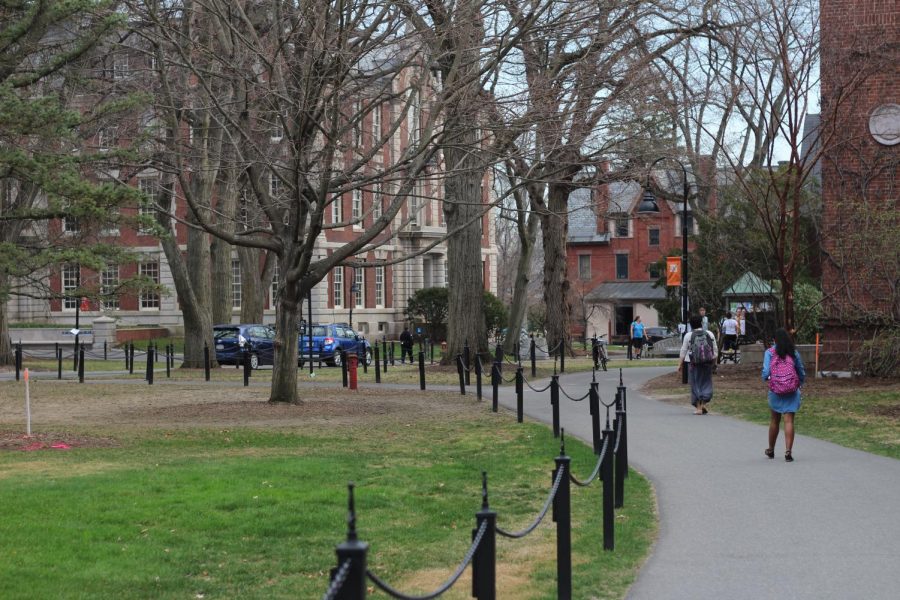Two Smith College students who were being examined for concerns of coronavirus have been cleared and removed from isolation.
According to a letter from Kris Evans, the interim director of the Schacht Center for Health and Wellness, and Julianne Ohotnicky, the associate dean of the College and dean of students, the first student placed herself into voluntary isolation on Feb. 2 after returning from travel in China. The student indicated she had cold-like symptoms and believed she may have returned on the same flight as the University of Massachusetts Boston student who was diagnosed with the illness.
“Out of an abundance of caution, and in accordance with [Massachusetts Department of Health] and [Centers for Disease Control and Prevention] guidance, the student will follow standard flu treatment guidelines and remain in isolation,” the letter said. “Medical staff will stay in close contact with the student to ensure she receives the care and support that adheres to public health guidelines.”
However, in a Feb. 4 letter, Susan Etheredge, the dean of the College and vice president for Campus Life, and Tara Dumont, the college physician, announced that the student had “left voluntary isolation after a medical exam because she has been symptom-free for 24 hours.”
The Feb. 4 letter also announced a second student who was being evaluated for possible exposure to coronavirus. The student had returned from travelling though the Hubei Province of China where the coronavirus outbreak had occurred.
The student had initially contacted DPH on Jan. 27 “for guidance on whether she should self-quarantine; because she remained asymptomatic, she did not meet criteria for isolation.” However, she later reported feeling “cold-like symptoms” to the Schacht Center for Health and Wellness and was taken to an emergency room for a medical evaluation.
A Feb. 10 update to the letter stated the student was “cleared by medical staff and is no longer in isolation.”
“At this time, Under CDC and DPH guidance, there is no identified risk to the Smith community,” Etheredge and Dumont wrote in the letter.
Coronavirus, officially named COVID-19 by the World Health Organization, is a respiratory illness with symptoms that include a cough, shortness of breath and symptoms similar to a fever. The outbreak was first detected in Wuhan City, Hubei Province, China.
The CDC has established certain criteria meant to guide medical professionals in evaluating coronavirus concerns. The criteria states that medical professionals should look for the symptoms of respiratory illness and fever and evaluate if the patient had travelled from mainland China or the Hubei Province within 14 days of symptom onset. If a patient had been in contact with another confirmed person with coronavirus, medical examiners just need to see if the patient has either a fever or symptoms of lower respiratory illness.
As of Sunday, more than 71,000 people had been infected globally with coronavirus, with most cases coming from mainland China, CNN reported. The number of deaths caused by the illness has increased to 1,770 people.
Colleges and universities around the state, including UMass, have been on alert for the illness. In addition, the Boston Globe reported several New England universities have suspended study-abroad trips to China in the Spring 2020 semester.
Smith College President Kathleen McCartney delivered a message to the Smith community on Feb. 7, urging students, staff and faculty “to remember that the human toll of this virus extends beyond those who have been infected.”
“At times when prejudice and racism threaten to divide us, we must bring even greater resolve to building community and supporting one another,” McCartney wrote. “Smith College stands by and with its Asian and Asian American community members and will continue to counter misinformation and bias about the coronavirus with information and education.”
Will Mallas can be reached at [email protected] and followed on Twitter @willmallas.





















joey • Feb 19, 2020 at 6:46 pm
College is a great place for the conravirus to spread or any virus/disease, this is for example why meningitis is common on college campuses.
I would not doubt now at least one of the five colleges is infected and once there is an infection at one it will quickly spread to the other colleges in the consortium.